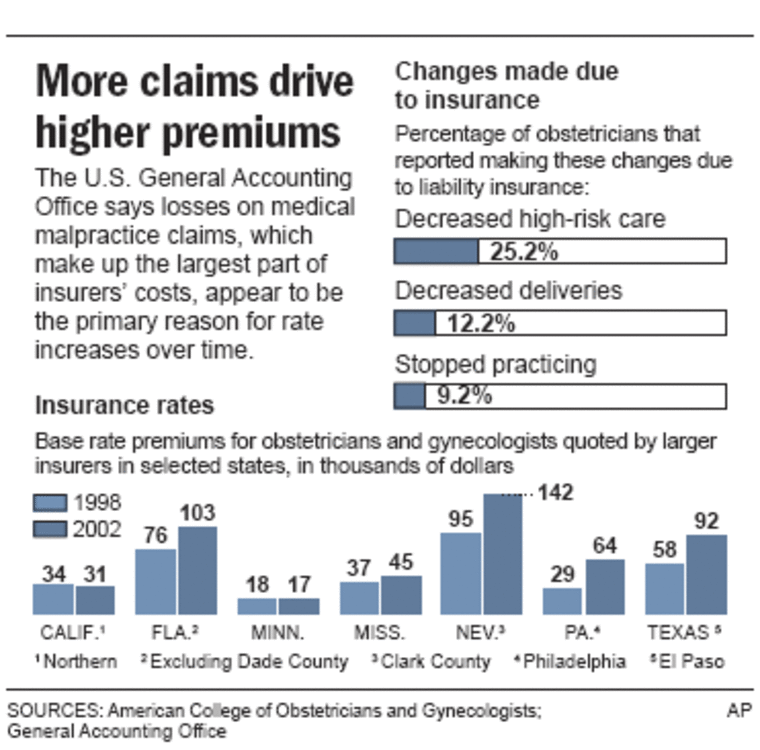Dr. John C. Nelson, an obstetrician, understands the desire of some parents to capture the miracle of birth on video. But a few years ago, he put a stop to the practice among his patients for fear the delivery-room footage could someday become Exhibit A in court.
“What once used to be really fun and warm and cozy and so forth is now a potential nail in the coffin from a liability perspective,” said Nelson, who practices in Salt Lake City and delivered babies until 2003. He is now president of the American Medical Association.
Many doctors and hospitals around the country are clamping down on videotaping in the delivery room out of concern those family videos could be used in malpractice suits.
Nelson acted three or four years ago after the medical center where he practiced urged limits. He said he does not allow families to videotape the birth itself, but they are free to record other events, such as the mother’s first moments with her child.
The doctor conceded that it can be difficult to tell excited, expectant parents that they will not be able to capture baby’s first wail, or Mom’s hard work, on video. But he said, “The doctor wants to be concerned about the clinical issue in front of him, and not have to worry about how it’s going to play on TV.”
Others argue that that is exactly how doctors should be thinking when they deliver a baby or perform other medical procedures.
“If doctors were concerned about liability and frivolous lawsuits, they should welcome videotapes,” said David Beninger, a lawyer in Seattle. “A videotape proves what happens and when it happens. There’s no more reliance on faded memories.”

Beninger said most people want to record a child’s birth for the memories, not the evidence, but those tapes can also come in handy if something goes wrong.
He relied on a personal videotape in a case involving a boy who was born in 1999 and died last May of pneumonia. He argued that medical records inaccurately portrayed the baby as healthy throughout the birth while the videotape showed dire complications.
The family eventually reached a $2 million settlement with Cascade Midwives and Birth Center in Everett. The medical center declined to comment.
The AMA has no guidelines on personal videotaping of deliveries. Alicia Mitchell, a spokeswoman for the American Hospital Association, said some hospitals have come up with policies, but many simply urge the patient to work it out with the doctor.
“Certainly the tendency is to move toward less and less ability to videotape,” said Larry Veltman, chairman of the professional liability committee for the American College of Obstetricians and Gynecologists.
In his own practice in Portland, Ore., Veltman allows some videotaping and photography, as long as the family has permission from everyone in the room and agrees to turn off the camera in an emergency.